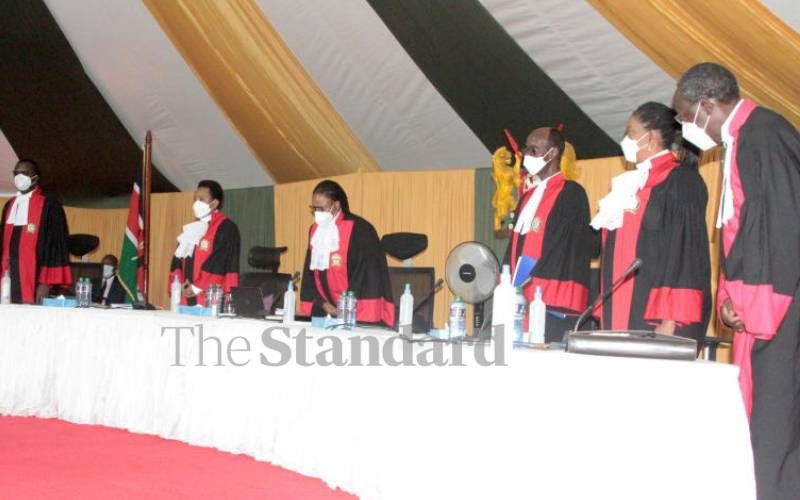×
The Standard e-Paper
Fearless, Trusted News

While the electoral commission is haggling with politicians over preparations for the August 9 General Election, the Judiciary has taken centre stage in shaping the process.
Based on recent decisions that go to the heart and soul of the forthcoming polls, the Judiciary has become the big brother watching the conduct of the Independent Electoral and Boundaries Commission (IEBC) and is always ready to hit at every baton to ensure the electoral process is free and fair.